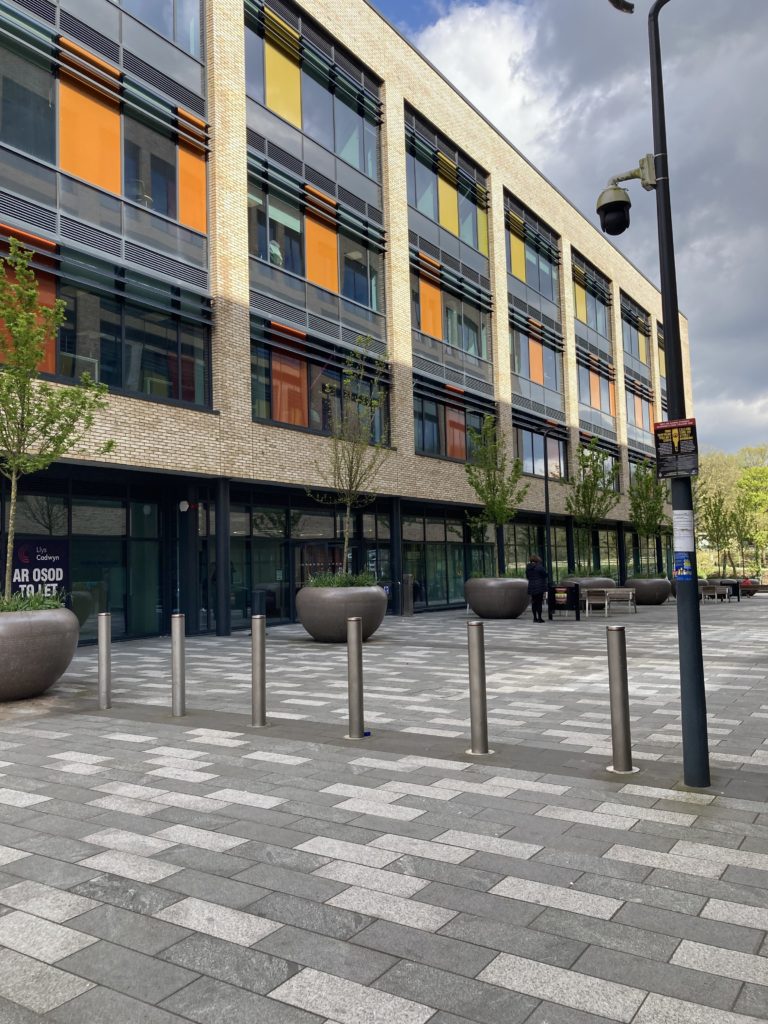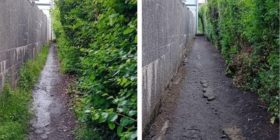Changes to waste collection in Rhondda Cynon Taf approved after unsuccessful call-in

Changes to how waste is collected in Rhondda Cynon Taf (RCT) will go ahead after a call-in for decision makers to reconsider them was unsuccessful.
The call-in related to a recent cabinet decision for all residents to present their refuse for collection in black bags rather than wheelie bins, to move to three weekly collections for trade refuse collections and to adjust the current winter green waste booking service and on Monday, July 29 the council’s overview and scrutiny committee voted not to refer the decision back to cabinet
On July 17, cabinet approved the changes to waste collection services which included standardising the collection method of residual household waste in the Cynon and Taf areas, in line with the method of the Rhondda, moving from wheelie bin collections to kerbside collections of standard size black bags only.
As part of these proposals, residents will have the option to keep their wheelie bins to store residual waste bags, with a maximum of three black bags to be placed out for collection at the kerbside every three weeks, as per the current allowance.
Cabinet also decided to change the frequency of refuse collections from premises that fall under the Workplace Recycling Regulations 2024 such as schools and commercial premises across Rhondda Cynon Taf to a three weekly collection cycle.
And they decided to adjust the current winter green waste booking service to
improve operational efficiency as well as keeping the council’s waste management strategy under review.
Councillors Karen Morgan (Plaid Cymru), Karl Johnson (Conservative) and David Evans (Independent) signed the call-in and the reasons included a need to further consider the negative impact of the decision for the residents of Cynon Valley and Taf Ely.
They also said that there was a need to consider the negative impact of the decision for RCT waste collection crews and that there is a need to further consider the environmental impact of the decision on the Cynon Valley and Taf Ely.
The councillors said there was a need to scrutinise a cost benefit analysis to inform the decision making and that the decision to proceed was taken without prior consultation with residents and without prior consultation with premises that fall under the Workplace Recycling Regulations 2024.
Why the councillors decided to call it in
Cllr Morgan said there had been no prior consultation and that residents do believe that this is a material change for them.
She said residents are concerned that streets would be less tidy and there would be increased litter and fly-tipping and she raised the issue of potential difficulties for some residents removing bags from bins.
She said: “The truth is that we do not know the possible impact on our residents and in turn the impact on service provision because we have not consulted with them.”
Councillor Johnson said that “one size does not fit all” and asked about savings and costs including how much the fines are for missing recycling targets and how much the savings from changes to the fleet would be.
He said the logistics have not been considered especially around the loss of productivity from “dead mileage” and around business waste costs and whether the service is profitable.
Cllr Johnson also raised the issue of how the changes will be enforced, the mess it could cause, costs to residents and those who can’t lift bags out of their bins.
He said: “If we really want to make change in this county borough with our recycling rates we need to take residents on a journey with us. This includes engagement which this council has yet again failed to do.”
Councillor Evans raised concern about the environmental impact and said no environmental impact assessment had been provided.
He said there would be without a doubt an increase in the amount of litter released into the environment and the impact on the street scene with issues like animals breaking open bags and spreading litter as well as high winds blowing bags around streets.
He almost mentioned the potential obstruction caused by bags for people with visual impairment as opposed to bins.
He said the change will cause more rubbish in the streets and more pollution in the environment saying wheelie bins are “easier, more convenient and cleaner”.
The rationale for the changes
The council has said that data analysis of the proposed introduction of black bag collections for all appears to come with a range of potential benefits, including an improved streetscape with less obstructions, increased recycling rates and a more efficient waste service along with improved use of the waste fleet and less impact on residents that have no option at the moment other than to bring their bins through their properties or up and down garden steps as bins are not be kept on the footway 24/7.
The changes are set to deliver savings and cost avoidances worth around £1m a year.
A review of the data since the 2023 changes were implemented, reveals alongside the need to improve the efficiency of the service and increase recycling rates, it is clear that there is a significant difference between those areas where wheelie bins are collected (Cynon and Taf) and those where black bags are collected directly from the kerbside (Rhondda) specifically around recycling including food waste.
The council said that data indicates that the Rhondda area recycles around 30% more and places out around 50% less black bag waste than in neighbouring areas.
It said Rhondda residents have been putting out black bags for collection for many years without bins and this proposal would ensure that the whole of the of RCT operates the same standardised collection method, with better use of the council’s fleet, removing obstructions from the footways caused by the bins, whilst for others it will mean they don’t need to take bins back and forth through their homes.
The views of the cabinet member and committee
Councillor Ann Crimmings, Labour cabinet member for environment and leisure, said that they’ve had one of the longest pilot trials on this in the Rhondda and it has a higher rate of recycling than the Cynon and Taf.
She said they have Welsh Government recycling targets to hit and that there are financial penalties attached to failing to meet these targets which would be a “huge detriment” to council finances and could result to closures of facilities like leisure centres and libraries.
She said she’s satisfied of the answers, assurances and rationale she has received from officers.
Councillor Loretta Tomkinson, Labour, said: “These decisions which are being made, they are difficult decisions which are not made lightly.
“If it keeps a leisure centre, a library or a community centre can remain open which many people rely on for their health and well-being then for me that’s a win. That’s a positive.”
Councillor Craig Middle, Labour, said that with education and engagement with the community they can make this happen.
He welcomed the cost saving measures and more efficiency saying it’s probably easier to handle black bags than wheelie bins.
He asked that it come to a scrutiny committee within three to six months for a detailed analysis.
Councillor Barry Stephens, Labour, said he’s “convinced” that they need to move forward and increase recycling rates adding “there’s a cost saving that will prevent us having to make cuts in other areas.”
He said this generation’s duty is “to provide a cleaner future for our children.”
Councillor Gareth Hughes, Labour, said it’s clear some residents are concerned over the proposed changes which is understandable when people have been doing something in a certain way for a long time.
But having used this method of collection all his life he said: “I don’t believe many of the concerns will become a reality.”
He said it is a “unique situation” where the proposed service change has had a 40-year pilot in the Rhondda.
He said there are sometimes issues in the Rhondda but there are also sometimes issues with wheelie bins in Cynon and Taf and said this is a “standardisation” of services to improve recycling rates and achieve efficiency savings in the region of £1m.
Councillor Scott Emanuel, Labour, said he has lived and operated under this system all is life and that there had been a great deal of “scaremongering” and “disinformation” on social media.
He said he’s surprised it’s taken a council of this size this long to standardise it’s waste collection services and he said everybody would expect the council to adopt the most efficient, the most cost-effective way of working.
He said it’s “such a small change to a service” and that it’s absolutely the right decision.
Councillor Ros Davis, Labour, said whatever the colour of their political cloth, councillors’ obligations to residents are the same and are about listening but also explaining and reassuring.
She said it might be challenging in the beginning but some people will find it easier, there will be workarounds and others will get the assistance that they need
She stressed the importance of recycling and recycling targets which are not abstract and in the financial context they are in the need to deliver some “really important critical services” such as social services.
Councillor Mike Powell, Independent, said more information is coming out which hadn’t been disseminated among communities.
He said that 78,000 households are being changed saying “that isn’t small.”
He said cabinet had made decisions on “assumptions” adding that “we need to be able to take the people and the residents with us if this is going to be implemented” but he said “at the moment we are definitely not. That’s not what’s happening” saying that’s valid reason for referring it back.
He also said that he is not totally against going to black bags and it’s “horses for courses”
By BBC LDRS
Spotted something? Got a story? Email News@News.Wales









